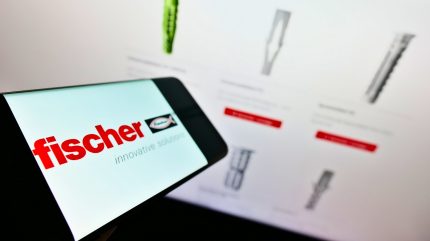
Fixing company fischer has announced the use of more than 50% post-consumer recycled (PCR) plastic for its FIS V Zero injection mortar cartridges.
This initiative aligns with the Circular Economy Act of Germany’s Federal Ministry for the Environment, Nature Conservation, Nuclear Safety and Consumer Protection.
The act, which was revised in 2020, promotes the development of waste management systems in the country.
The company is transitioning all its available 360ml and 300ml FIS V Zero product variants to the new packaging materials.
Additionally, a new 150ml version has been introduced, specifically for home users with fewer fastening points, reducing waste from unused mortar.
fischer’s cartridges are complex technical components, according to the company, comprising up to six parts.
The use of PCR content in the FIS V Zero injection mortar makes it the first non-hazardous injection mortar under the EU’s CLP chemical regulation, safeguarding the environment and user health.
The FIS V Zero offers performance on par with other universal mortars, thanks to a novel curing system that eliminates the need for peroxides and hazard labels. This innovation complies with the stringent EU CLP chemical regulation.
fischer Chemical Business Unit developer Amir Assadi said: “While developing our cartridges made of recycled material, we overcame many challenges in the development department of our Denzlingen site and explored various options.
“We were assessing the use of wood-plastic composites (WPC) as early on as 2013. As a result, we examined the market acceptance of post-industrial recycled (PIR) and mass balance plastics made from alternative raw materials. We even considered mechanically processing empty injection mortar cartridges.”



